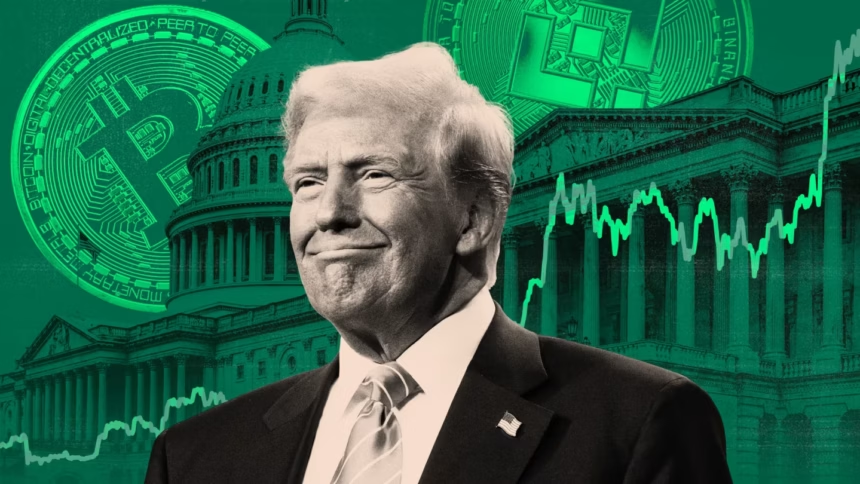Trump Bitcoin Presidency Timeline: From Skeptic to Crypto Advocate
Background: Donald Trump’s Shift on Bitcoin and Cryptocurrency
Donald Trump’s relationship with cryptocurrency, especially Bitcoin, has evolved markedly over recent years. After winning the 2024 U.S. presidential election, Trump surprised the public ahead of his January inauguration by launching the TRUMP meme coin on the Solana network. The token initially reached a market capitalization of $14 billion, later dropping to $1.5 billion, but signaled the new president’s heightened engagement with the digital asset space (Decrypt).
Trump’s 2019 statements reveal he was once a vocal crypto critic. At the time, he declared, “I am not a fan of Bitcoin and other cryptocurrencies, which are not money, and whose value is highly volatile and based on thin air,” via Twitter. During the 2021 Bitcoin bull run, he further described Bitcoin as “a scam” on Fox Business and stressed his preference for the dominance of the U.S. dollar. His stance began to change following increased exposure to NFT collectibles, including successful digital trading card launches on Polygon and even Bitcoin’s Ordinals protocol.
Market Reaction and Policy Shift on Digital Assets
Trump’s personal ventures—such as his NFT collections—and substantial support from Silicon Valley tech leaders underscored his growing pro-crypto sentiment. His campaign drew millions in cryptocurrency donations, with prominent figures like Gemini’s Winklevoss twins and Kraken’s Jesse Powell contributing. According to Decrypt, blockchain analytics firm Arkham Intelligence identified wallets tied to Trump with significant NFT royalties and holdings in unofficial meme coins.
In 2024, the shift became official. Trump publicly endorsed cryptocurrency, stating, “I make money with it, I have fun with it too,” during a March interview with CNBC’s Squawk Box. Later, at the Bitcoin Conference in Nashville, he promised to build a “strategic Bitcoin stockpile” for the U.S. and transform the country into a “crypto capital.” The Republican Party followed suit by including crypto policy in its draft platform, a first for the industry.
Trump’s vice presidential pick, Senator J. D. Vance, was recognized for his pro-crypto stance, having disclosed significant Bitcoin holdings. On his roster were fellow advocates such as Robert F. Kennedy Jr., who became Secretary of Health and Human Services after suspending his own campaign to support Trump. High-profile supporters like Elon Musk and Cantor Fitzgerald CEO Howard Lutnick also played roles in advancing digital asset policy.
Crypto Projects, Legislation, and Industry Impact
During Trump’s presidency, notable crypto initiatives took shape. The Trump family launched World Liberty Financial, a decentralized finance (DeFi) platform for Ethereum-based borrowing and lending. Initially, the project underperformed in token sales but rebounded ahead of the inauguration, culminating in the introduction of a stablecoin. Trump’s sons, Donald Jr. and Eric, also collaborated with Hut8 on an initiative called American Bitcoin, aiming to build a leading Bitcoin mining operation.
Trump’s administration marked several firsts: He created a national Bitcoin reserve, became the first president to sign crypto-focused legislation (repealing the IRS’s DeFi broker rule), and pressed the SEC to drop multiple lawsuits against crypto companies from prior years. In August 2025, Trump signed an executive order prohibiting the debanking of crypto-related companies, addressing a major concern among digital asset players. The president’s media firm, Trump Media and Technology Group, signed a partnership with Crypto.com for ETFs and invested billions in Bitcoin-related products.
Despite criticism from some politicians and ongoing scrutiny over potential conflicts of interest, Trump’s pro-crypto actions have energized the digital asset sector and drawn significant public attention. Supporters even celebrated his influence by constructing a golden Trump statue holding a Bitcoin in Washington, D.C., as reported by Decrypt.
What’s Next for Trump’s Bitcoin and Cryptocurrency Agenda?
Trump’s evolution from a crypto skeptic to a vocal advocate has had direct policy implications, including the repeal of unfavorable IRS rules and the creation of a strategic Bitcoin reserve. With key members of his team and family launching new decentralized projects and wallet initiatives, Trump’s presidency continues to shape cryptocurrency policy in the United States.
The ongoing collaboration among Trump’s administration members and industry leaders signals continued momentum for the digital asset sector. The passage of crypto-related bills and the reduction of regulatory pressures are likely to bolster innovation, partnering with major platforms such as Crypto.com and Hut8 to advance the U.S. crypto ecosystem. For the latest updates on digital assets and regulatory developments, visit Vizi’s cryptocurrency section.
Sources
Reporting via Decrypt



















